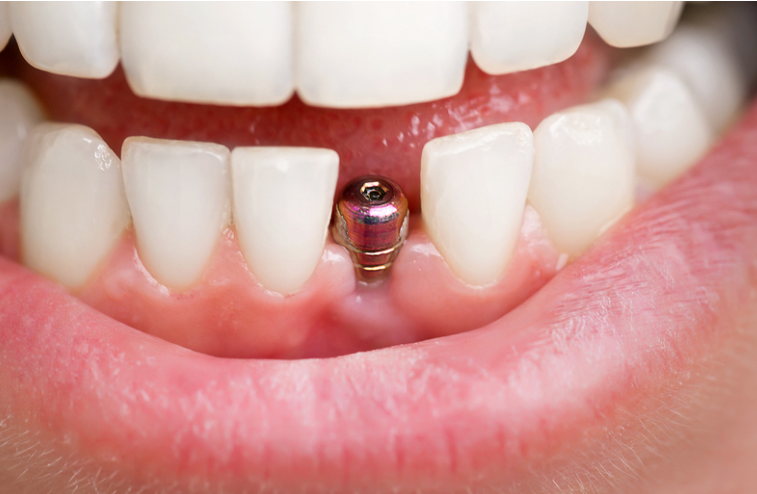Dental Implants: What to Expect Before, During, and After the Procedure
If you’ve lost a tooth or are dealing with uncomfortable dentures, you’ve probably heard about dental implants. They’re one of the most reliable and natural-looking solutions to replace missing teeth. But if you’ve never had one, the idea of getting a dental implant can sound a little intimidating.
Don’t worry, in this guide, I’ll walk you through exactly what to expect before, during, and after the dental implant procedure. By the end, you’ll know the process step by step, and most importantly, you’ll feel more confident about making the right decision for your smile.
What Are Dental Implants?
Simply put, dental implants are artificial tooth roots. They’re usually made of titanium (a very safe and strong metal) and placed into your jawbone. Once the implant fuses with your bone, a crown (artificial tooth) is placed on top, making it look and function just like a natural tooth.
Think of it as building a strong foundation in the ground before placing a house. The implant is the foundation, and the crown is the house.
See also: Gentle Guidance Through Life’s Health Changes
Why Choose Dental Implants?
There are many options to replace missing teeth, like bridges or dentures, but dental implants are often considered the gold standard. Here’s why:
- They look and feel like natural teeth.
- They last for decades with proper care.
- They help protect your jawbone (unlike dentures, which can cause bone loss).
- You can eat, speak, and smile with full confidence.
What to Expect Before Getting Dental Implants
The process starts long before the actual surgery. Here’s what usually happens:
1. Initial Consultation
Your dentist will examine your teeth, gums, and jawbone. They may take X-rays or 3D scans to see if your bone is strong enough to support an implant.
If your bone is too thin or weak, you might need a bone graft (extra bone added to strengthen your jaw) before moving forward.
2. Medical History Review
Your dentist will ask about your health, any medications you take, and past surgeries. Certain conditions, like uncontrolled diabetes or smoking, may affect healing.
3. Treatment Plan
Every patient is different. Some need one implant, while others may need several. Your dentist will create a custom plan for you.
Pro Tip: Don’t be shy, ask as many questions as you need. Understanding the plan helps reduce anxiety.
What Happens During the Dental Implant Procedure
The idea of surgery may sound scary, but dental implant procedures are usually much easier than people imagine. Here’s a step-by-step breakdown:
Step 1: Numbing the Area
Before the surgery begins, the dentist will give you local anesthesia (numbing medicine), so you won’t feel pain during the procedure. In some cases, sedation or general anesthesia may be used if multiple implants are needed.
Step 2: Placing the Implant
The dentist makes a small cut in your gum, drills a tiny hole into the jawbone, and places the titanium implant inside. The gum is then stitched back over the implant.
This may sound intense, but remember you’re completely numb during the process. Most patients describe it as “pressure” rather than pain.
Step 3: Healing Period (Osseointegration)
This is the most important stage. Over the next 3–6 months, the implant fuses with your jawbone in a process called osseointegration. This makes the implant strong and stable, just like a natural tooth root.
Step 4: Abutment Placement
Once the implant has healed, a small connector piece called an abutment is attached. This is what will hold your new crown (tooth) in place.
Step 5: Crown Placement
Finally, your custom-made crown is placed on top of the abutment. The crown is designed to match the color and shape of your natural teeth.
The result? A beautiful, strong, and natural-looking tooth.
What to Expect After the Dental Implant Procedure
The recovery process is usually smooth, but here’s what you can expect:
1. Immediately After Surgery
- Some swelling and mild discomfort (like after a tooth extraction).
- Minor bleeding for the first 24 hours.
- Your dentist will prescribe pain medication or recommend over-the-counter pain relievers.
2. Healing Process
- Avoid hard or crunchy foods for a few days. Stick to soft foods like soup, yogurt, mashed potatoes, and smoothies.
- Keep your mouth clean by gently rinsing with saltwater (avoid vigorous swishing).
- Don’t smoke- it slows healing and increases the risk of implant failure.
3. Long-Term Care
- Brush and floss your implant just like a natural tooth.
- Visit your dentist regularly for checkups.
- With proper care, dental implants can last a lifetime.
Common Concerns About Dental Implants
- “Is the procedure painful?”
Most patients say it’s less painful than a tooth extraction. The area is numbed, and discomfort afterward is manageable. - “How long does the whole process take?”
From consultation to final crown, it usually takes 3–9 months (depending on healing time). - “Are dental implants safe?”
Yes. Dental implants have a success rate of over 95% and are considered one of the safest dental procedures.
Cost of Dental Implants in the USA
The cost varies depending on where you live, your dentist, and how many implants you need. On average:
- Single Dental Implant: $3,000 – $6,000
- Multiple Implants: $6,000 – $20,000+
- Full Mouth Implants (All-on-4): $25,000 – $50,000+
Pro Tip: Many dental offices in the U.S. offer financing or payment plans. Check with your insurance provider as well; some may cover part of the procedure.
FAQs About Dental Implants
1. How long do dental implants last?
With good care, dental implants can last 20 years or more. Many last a lifetime.
2. Are dental implants better than dentures?
Yes, for most people. Implants are more stable, comfortable, and natural-looking. Dentures can slip or feel uncomfortable.
3. Can anyone get dental implants?
Most adults with good oral health are candidates. However, people with severe bone loss, uncontrolled diabetes, or who are heavy smokers may not be ideal candidates without additional treatments.
4. How soon can I return to work after getting implants?
Most patients return to work within 1–2 days after surgery. If multiple implants are placed, you may need a little more rest.
5. Do dental implants require special care?
No: just brush, floss, and visit your dentist regularly, just like with natural teeth.
Final Thoughts
Getting dental implants may sound overwhelming at first, but once you understand the process, it becomes much less intimidating.
- Before surgery, you’ll go through careful planning and consultation.
- During surgery, you’ll be numb and comfortable while the implant is placed.
- After surgery, healing takes time, but the result is worth it: a strong, natural-looking smile.
Dental implants aren’t just about replacing teeth; they’re about restoring confidence, improving oral health, and giving you the freedom to eat, speak, and smile without worry.
So if you’re considering dental implants, talk to your dentist today. The sooner you start, the sooner you’ll be enjoying your brand-new smile.






